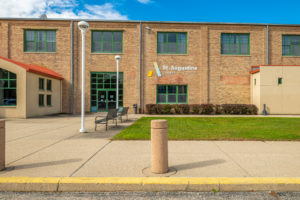Pros and Cons of a Respiratory Therapy Career
If you’re asking the question, is respiratory therapy a good career for you? We are here to answer. Being a registered respiratory therapist is a challenging but ultimately rewarding career. Of course, this hard work requires a certain amount of skill and dedication to the profession. Do you want to know if you have what it takes?

Pros of Being a Registered Respiratory Therapist
Job Security and Respect
With the COVID-19 pandemic, there is now a greater demand for respiratory therapists than ever before. If you are to become a respiratory therapist, you are expected to find a position that can help you start a respiratory therapist career path. And not only do CRTs or RTTs have job security, but this is also a job that is well respected in the medical field, and among your peers, you will be considered an expert in your profession, one that will help contribute to the conversation of improving a patient’s life.
Flexibility
The respiratory therapist job outlook comes with flexible hours that can work around your schedule. For example, while you might have to work longer hours, this results in you having to work only 12 days a month, compared to a conventional 9-5 job where you will be working around 20 days a month.
Freedom to Work Anywhere
Becoming a traveling respiratory therapist is a great way to get autonomy and still have a fully formed career in the medical field. As a traveling respiratory therapist, you would be traveling across the United States and being a vital part of medical facilities while treating a wide variety of patients.
Cons of Being a Registered Respiratory Therapist
The Intensity of the Healthcare Field
Working in healthcare requires responsibility and every day may bring new experiences. For some, this is a great opportunity to see every day as a new opportunity to challenge yourself and make a difference.
Work Schedules
Depending on your work schedule you might be working fewer days in a month but with longer hours. You might be working shifts that require weekends and/or holidays.
Certification Required
After graduating, you must take the credentialing exam and upon passing apply for a professional license in the state of your choice.
How to Become a Respiratory Therapist
It starts with a college education that works for you. At St Augustine College, our Associate of Applied Science Degree in Respiratory Therapy is the step that will get you on the career path in respiratory therapy. This program can be completed in only six semesters, and graduates are eligible to take the registry examination. With classes that are flexible and work around your schedule, learn more about St. Augustine’s at Lewis University AAS degree program in Respiratory Therapy today, and see how you can build your future for tomorrow.




